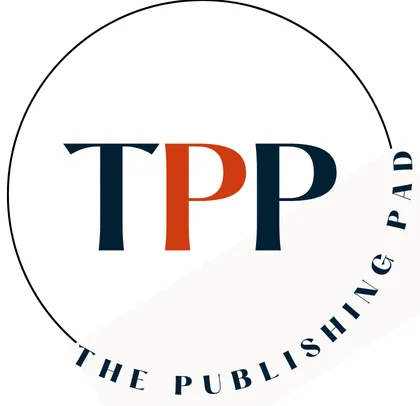So You Want to Write a Fiction Book?
Let’s set the scene: You’re sitting on the edge of your bed, staring at a notebook or blinking cursor, daydreaming about the epic story that’s been living in your mind for years. You’ve imagined the characters, played out scenes in your head during long commutes, and maybe even whispered bits of dialogue to yourself in the shower. But then the doubt creeps in; Where do I even begin? How do I write a fiction book? Am I even qualified to write one?
You’re not alone. In fact, according to Forbes, over 80% of Americans say they want to write a book someday, but only a tiny fraction ever follow through.
This guide is here to change that.
Whether you’re writing for fun, aspiring to publish, or finally answering that creative itch you’ve ignored for too long, this step-by-step article will help you turn your dream into a fully-formed story. You don’t need to be a literary genius; just be willing to learn, show up consistently, and trust your voice.
Step 1: Get Clear on Your “Why”
Before you write a single word, you need to ask yourself the simplest and most important question: Why do I want to write a book?
Do you want to inspire readers? Build a writing career? Finally, tell that story that’s been burning inside you since high school?
Knowing your “why” will help you stay focused when motivation dips. It gives you a compass. Without it, it’s easy to fizzle out before finishing your first chapter.
Some common reasons writers start their first fiction book include:
- Creative self-expression
- Legacy: leaving behind a story for future generations
- Catharsis or healing through storytelling
- Building a platform or author brand
- A long-standing dream
Tip: Write down your “why” and keep it somewhere visible while you write.
“Writing a book is a long-term relationship, not a one-night stand.”
Step 2: Start with an Idea Worth Writing
Every great fiction book starts with a single spark — a question, a character, a moment. The key is to find an idea that excites you, because you’ll be spending a lot of time with it.
Here are a few methods to generate fiction-worthy ideas:
- What-if questions: What if a kid woke up one day and no one could see them anymore?
- Twist the ordinary: Take a normal situation and flip it: what if your Uber driver was actually a ghost?
- Use personal experience: Real life often inspires the best stories.
Try brainstorming using index cards, a mind map, or simply freewriting. Don’t overthink it; the seed doesn’t need to be perfect. It just needs to matter to you.
If you’re stuck, download our free guide “10 STEPS TO FINALLY START WRITING YOUR BOOK” at The Publishing Pad. It’s a clear, simple roadmap that’s already helped dozens of aspiring authors get unstuck and start writing.
Step 3: Develop Compelling Characters
Think of your favourite book. Chances are, you remember the characters more than the plot. Characters are the emotional anchor of your story; they’re why people keep turning pages.
To create memorable characters:
- Give them desires and flaws: A perfect character is boring. A messy one is human.
- Define their arc: How will your character grow or change by the end of the book?
- Ask them questions: Where did they grow up? What’s their biggest fear? What lies do they believe about themselves?
- Avoid stereotypes: Make them specific and nuanced.
You can use tools like the MasterClass character development guide or character profile templates to flesh them out.
Example: Katniss Everdeen from The Hunger Games isn’t just a skilled archer. She’s a reluctant hero driven by love and survival; that complexity makes her unforgettable.
Step 4: Craft a Strong Plot and Structure
Now it’s time to organize your idea into a workable structure. This is the step that turns daydreams into actual books.
There’s no single “right” way to plot your novel, but here are three time-tested methods:
- Three-Act Structure: Setup, confrontation, and resolution.
- The Hero’s Journey: A call to adventure, trials, transformation, and return.
- Save the Cat Beat Sheet: A screenwriting-inspired method that breaks your story into 15 essential beats.
Outlining may seem like it kills creativity, but it actually frees you to explore ideas without getting lost in the middle of your story (also known as the “muddy middle”).
You can check out Now Novel’s plot structure guide for more on outlining.
Here’s a simple plot-building exercise:
- Beginning: What’s normal life like for your character?
- Middle: What major conflict disrupts it?
- End: How is your character transformed?
Step 5: Start Writing (Even If It’s Not Perfect)
This is where many aspiring authors stall: the actual writing. But here’s the truth: your first draft doesn’t need to be good, it just needs to exist.
Some helpful strategies:
- Set realistic word count goals (e.g., 500–1,000 words per day)
- Use writing sprints (try the Pomodoro Technique)
- Don’t edit as you write — that’s for later
- Celebrate small wins (each chapter is progress)
Apps like Scrivener, Dabble, or even Google Docs can help you stay organized. If you’re more analog, a trusty notebook will do just fine.
Remember: Done is better than perfect.
Step 6: How Long Does It Really Take to Write a Fiction Book?
This might be one of the most Googled questions for new authors:
“How long does it take to write a fiction book?”
The short answer: It depends.
The long answer: Your timeline will vary based on how much time you can consistently dedicate and how long your book is.
Let’s break it down:
| Book Length (Words) | Writing 500 Words/Day | Writing 1,000 Words/Day |
| 50,000 (Short novel) | 3.5 months | 2 months |
| 80,000 (Average novel) | 5.5 months | 2.5–3 months |
| 100,000 (Epic fiction) | 7 months | 3–4 months |
But writing time is just the beginning. Add time for outlining, editing, and revisions, and you’re realistically looking at 6–12 months for a finished, polished manuscript.
To stay on track:
- Use tools like Notion or Pacemaker to plan your writing schedule
- Create self-imposed deadlines
- Join writing challenges like NaNoWriMo (National Novel Writing Month)
“It’s not about how fast you write. It’s about how often you show up.”
Step 7: Edit Like a Professional (or Hire One)
Writing a fiction book is just half the process. Editing is where the magic and clarity happen.
Self-editing tips:
- Let your draft rest for 1–2 weeks before editing
- Read it aloud (you’ll catch flow and rhythm issues)
- Use editing tools like:
- Grammarly
- ProWritingAid
- AutoCrit (specifically for fiction editing)
Professional editing stages:
- Developmental editing – Big-picture feedback (structure, pacing, character arcs)
- Line editing – Sentence-level flow and voice
- Copy editing – Grammar, spelling, consistency
- Proofreading – Final polish before publishing
Hiring an editor? Ask for a sample edit and check their portfolio. Or, save yourself the search and work with a comprehensive publishing partner. At The Publishing Pad, professional editing is a key part of our all-in-one service, ensuring your book is polished and ready for the world.
Step 8: Publishing Paths: Traditional vs. Self-Publishing
Once your manuscript is ready, it’s decision time: How will you publish your fiction book?
Option 1: Traditional Publishing
- You submit a query letter to a literary agent
- If accepted, they pitch your book to publishers
- You receive an advance and royalties (usually 10–15%)
Pros: Distribution, prestige, editorial team
Cons: Long process, less control, high rejection rate
Option 2: Self-Publishing
- You act as your own publisher (via Amazon KDP, IngramSpark, etc.)
- You control the timeline, cover, pricing, and marketing
- Higher royalties (35–70%)
Pros: Speed, control, higher income potential
Cons: Upfront costs, all marketing is on you
Want help deciding? That’s where The Publishing Pad comes in. We support writers at every stage from first draft to publishing success. Whether you’re going indie or aiming for a book deal, our team can help you map out your unique journey.
Don’t forget to download our free lead magnet: 10 STEPS TO FINALLY START WRITING YOUR BOOK; it’s designed to help you stop procrastinating and start writing now.
Conclusion: Your Story Deserves to Be Written
You don’t need to have a literary degree, thousands of social media followers, or even a perfectly clear idea to start writing. What you need is courage, consistency, and a commitment to getting your story out of your head and onto the page.
Every author was once where you are now, unsure, overwhelmed, but ready to begin.
So… what story are you waiting to tell the world?
❓ FAQs: Writing a Fiction Book; Your Questions Answered
1. How do I start writing a fiction book with no experience?
Start with a small idea and build from there. Focus on writing consistently, not perfectly. Use free tools like prompts, outlines, and beginner courses. Don’t wait until you feel “ready.” Instead, start messy and learn as you go.
2. Do I need to plan my book before I write it?
Not necessarily. Some writers outline every chapter (“plotters”), while others dive in with a rough idea (“pantsers”). Try a hybrid approach: create a basic roadmap and allow flexibility along the way.
3. How long should a fiction novel be?
It depends on genre:
- Romance: 50,000–70,000 words
- Thriller/Mystery: 70,000–90,000 words
- Fantasy/Sci-Fi: 90,000–120,000+ words
Aim for 80,000 words as a beginner-friendly benchmark.
4. What software is best for writing fiction?
Popular tools include:
- Scrivener: Great for organization and long-form writing
- Google Docs: Simple and shareable
- Dabble: Fiction-focused with drag-and-drop features
- Novlr: Distraction-free, clean interface for novelists
5. What makes a story compelling?
Engaging stories often feature:
- Relatable characters with strong motivations
- High emotional stakes
- Conflict and transformation
- A satisfying resolution
Readers connect with characters more than events — they make us feel something.
6. Should I hire an editor before I publish?
Absolutely. Even the best writers miss typos or plot holes. An editor can elevate your work, clarify your voice, and ensure a professional finish. Consider budgeting for at least a copy edit before publishing.
7. Can I publish a book without a publisher?
Yes! Self-publishing gives you full control over your book. Platforms like Amazon KDP let you upload, distribute, and sell your book worldwide. It’s faster and more accessible than traditional publishing, and thousands of authors are doing it successfully.

